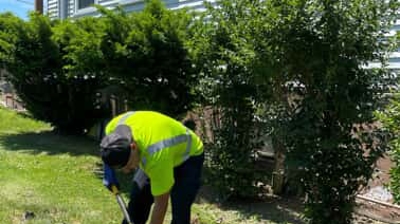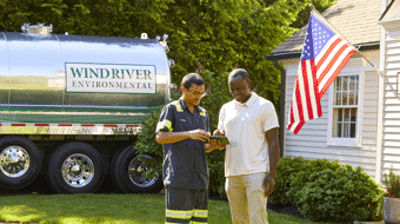Tips for Preparing Your Septic Tank for the Approaching Rainy Season
As hurricane season (May 15th to October 15th) approaches, homeowners and businesses must proactively protect their septic tanks from potential damage. Heavy rainfall and storms can strain septic systems, leading to costly repairs and disruptions in daily operations. Rain will not only raise the water table and reduce the amount of effluent you can properly handle through your septic system, but it also runs the risk of flooding your system and causing scum or solids to get into areas that are only designed to handle the liquid effluent - risking clogs and possibly failure. Here, we will share some preventative tips to help you prepare your septic tank for the approaching rainy season.
Inspect and Pump Regularly
Regular inspections and pumping are among the most important steps in maintaining a healthy septic system. Before the rainy season hits, schedule a professional inspection to assess the condition of your tank and identify any potential issues. If it has been more than 3-5 years since your last pump, it may be time to schedule a pumping service to remove accumulated solids and prevent backups during heavy rainfall.
Check Drainage Conditions
Proper drainage prevents water from pooling around your septic tank and leach field during storms. Make sure that gutters are directing water away from the area, avoid planting trees or shrubs near the system that could interfere with drainage, and consider installing a rainwater collection system to divert excess water away from the tank.
Avoid Overloading the System
During heavy rainfall, it is important to be mindful of how much water you use in your home or business. Avoid doing multiple loads of laundry in one day, limit showers or baths, and spread out dishwasher or washing machine use over several days to prevent overwhelming your septic system. Conserving water can help reduce stress on the tank during heavy rain.
Use Septic-Safe Products
To maintain a healthy balance of bacteria in your septic tank, it is important to only use septic-safe products in your home or business. Harsh chemicals can disrupt the natural processes that break down waste in the tank, leading to clogs or backups. Look for products labeled as safe for septic systems, such as toilet paper, cleaning agents, and laundry detergents.
Monitor for Signs of Trouble
Watch for warning signs that indicate a problem with your septic system, such as slow drains, foul odors inside or outside your home or business, soggy areas around the tank or leach field, or gurgling noises from pipes. If you notice any of these symptoms, contact a professional immediately to address the issue before it worsens.
Stay Ready With Help From Wind River Environmental
As hurricane season approaches and heavy rainfall becomes more frequent, taking proactive steps to prepare your septic tank can help prevent costly repairs and disruptions in service. Let Wind River Environmental give you peace of mind, knowing your septic system is prepared for whatever the season brings.
Our team of experienced professionals is equipped to provide thorough inspections, regular maintenance, and effective solutions to ensure your septic tank remains in optimal condition, safeguarding it against the challenges of heavy rainfall and storms.
Protect your property and prevent septic emergencies by scheduling an appointment with us today.




.2504171222540.png)

